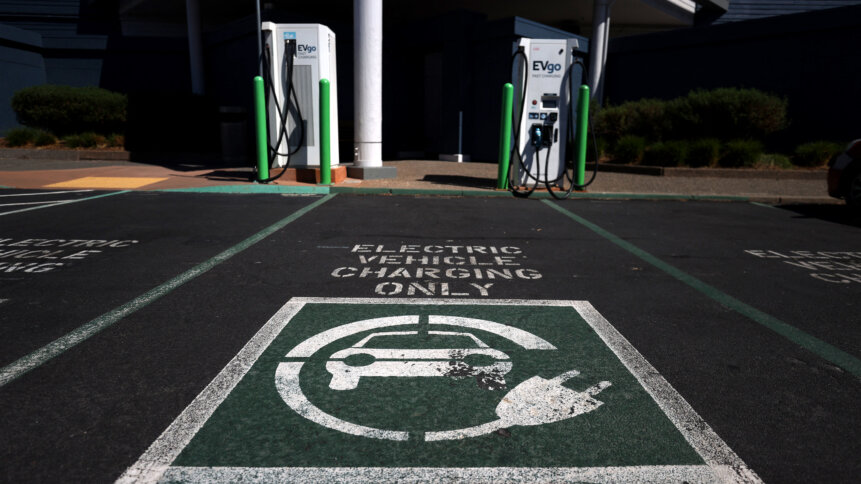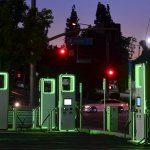Shell to install 50,000 EV street chargers in UK green smart city push

The Royal Dutch Shell company is the latest UK corporate entity to pledge to a green infrastructure commitment in the country, as the government shores up its net-zero carbon goals ahead of a pending climate conference.
Shell is planning to expand its network of electric vehicle (EV) chargers in the UK to drivers who don’t have private parking spots, according to a statement just released and reported by Bloomberg. The Shell unit Ubitricity will be responsible for the installation of 50,000 street-level charging post rollout throughout the UK.
This would add to the 3,600 street EV chargers that Shell had already installed nationwide, as the UK prepares for a ban of new petrol- and diesel-powered cars within the next ten years. Alongside the fossil fuel new car ban by 2030, Prime Minister Boris Johnson had previously announced a sweeping £12 billion (US$15.9 billion) “green industrial revolution” plan with the high-level target of slashing carbon emissions in the UK to net-zero by 2050.
This is a lofty and ambitious target for a country that has been pumping out carbon emissions since the Industrial Revolution over a century ago. Among other things, the green plans would see the government backing various clean energy and green industry initiatives, including spending on hydrogen fuel production, developing both large- and smaller-scale nuclear plants as a clean energy source, and whittling traditionally legacy fuel-intensive sectors like shipping and planes down to zero emissions, to name a few.
Furthering objectives that might once have been considered innovation-driven ‘smart city’ projects, the UK also wants to run programs that would highlight walking and cycling as attractive alternatives to fossil fuel transportation, and invest in other zero-emission public transportation.
Other initiatives include making residences more energy-efficient, which is projected to create 50,000 jobs by 2030. Building advanced nuclear plants is further expected to be able to support 10,000 new jobs. And of course, the government is investing £1.3 billion (around US$1.7 billion) to accelerate EV charge points introduction in residential parts of the country.
The UK government’s Office for Zero-Emission Vehicles is presently subsidizing 75% of the installation costs, and Shell has committed to covering the outstanding amount subject to commercial terms, according to the company.
As part of the green transportation push, £582 million (approx. US$800 million) has been set aside to encourage consumers to buy zero or ultra-low emission vehicles. The phasing out of petrol and diesel vehicles is expected to be the most radical change, with the 2030 goal ten years ahead of the net-zero targets of France and the Netherlands.
YOU MIGHT LIKE

Sustainable energy innovations that save time and money
The UK is due to host the COP26 climate conference in Scotland, and is attempting to get more FTSE 100 companies to officially declare their net-zero commitments ahead of it. UK net-zero business champion Andrew Griffith told the Financial Times that large enterprises have a responsibility to show leadership on climate” and that they should all be aiming to set ‘race to zero’ targets.
Meanwhile, the UK rollout announcement comes four months after Shell set out its strategy to accelerate its own transformation scheme, into a provider of net-zero emissions energy products and services, powered by growth in its customer-facing businesses. This includes an aim to grow its global EV network to around 500,000 charge points by 2025. Shell Recharge, Shell’s electric mobility brand, is installing fast chargers on the Shell forecourts in the Netherlands. Presently, more than 160 fast chargers have been installed at Shell stations.









